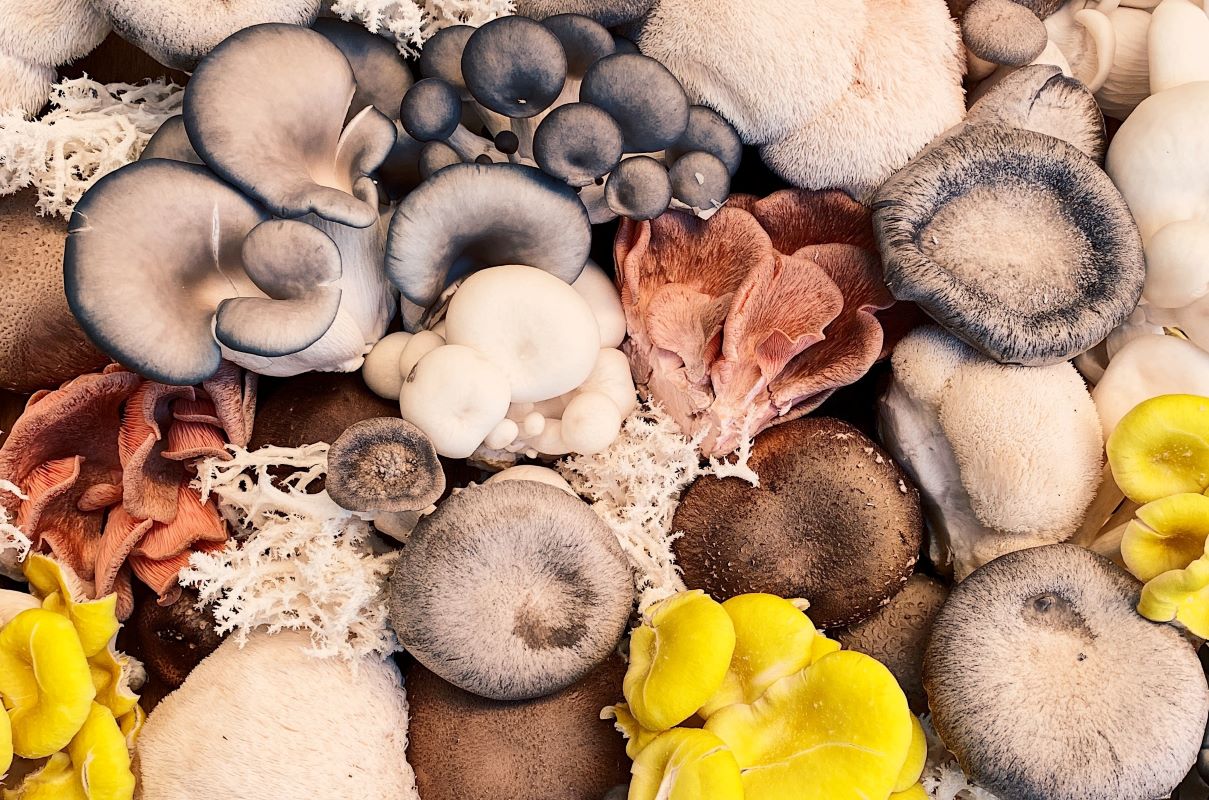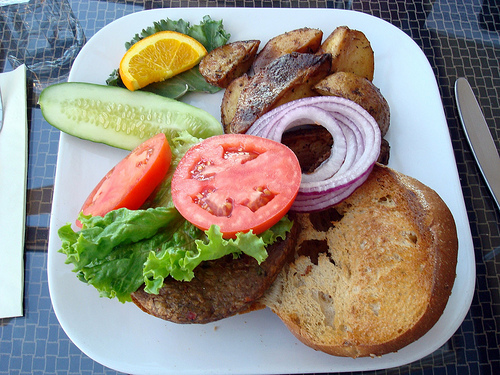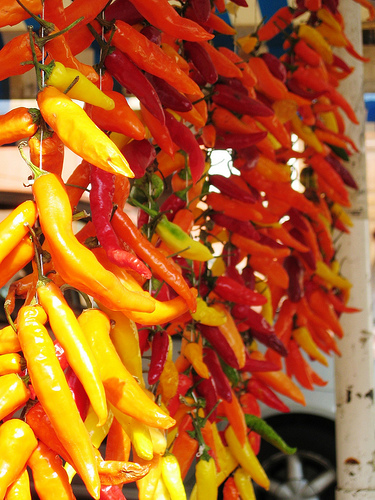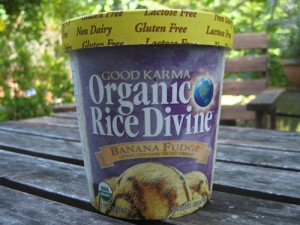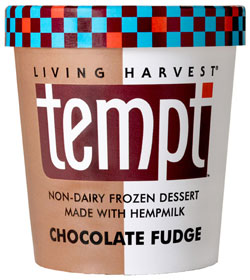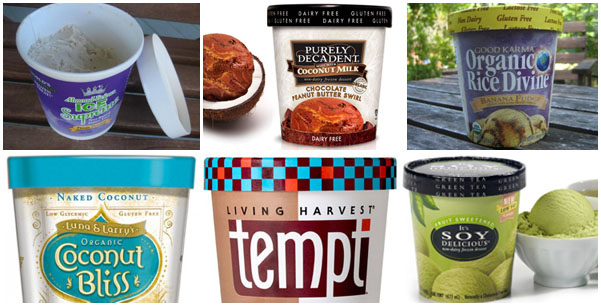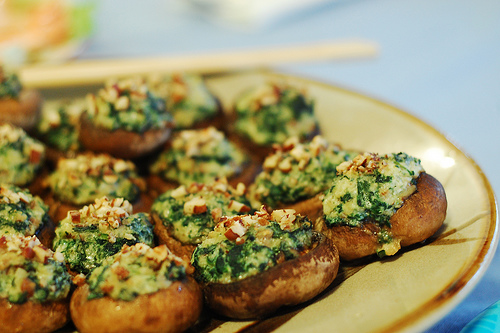Table of Contents
Vitamin D, often fondly referred to as the ‘sunshine vitamin’, is a crucial nutrient that our bodies need to function optimally. As a fat-soluble vitamin, it plays a significant role in supporting a healthy immune system, promoting cell growth, and maintaining strong bones.
There are actually two forms of vitamin D:
- Vitamin D2
- Vitamin D3
Vitamin D2 is plant-based, and Vitamin D3 generally comes from animal sources. You might hear that D3 is easier for your body to absorb, but vegans can absolutely get enough vitamin D from eating fortified and D-rich foods (more on that below!) or from taking a vitamin D2 supplement.
Despite its importance, getting enough vitamin D can pose a challenge, particularly for vegans. This is because a majority of vitamin D-rich foods are animal-based. However, with the right knowledge and resources, vegans can maintain optimal vitamin D levels and reap its numerous health benefits.
Vitamin D’s Importance for the Body
The National Institutes of Health recognizes Vitamin D as an essential nutrient our bodies need to function effectively. It plays many important roles in our bodies, from maintaining bone health to supporting the immune system.
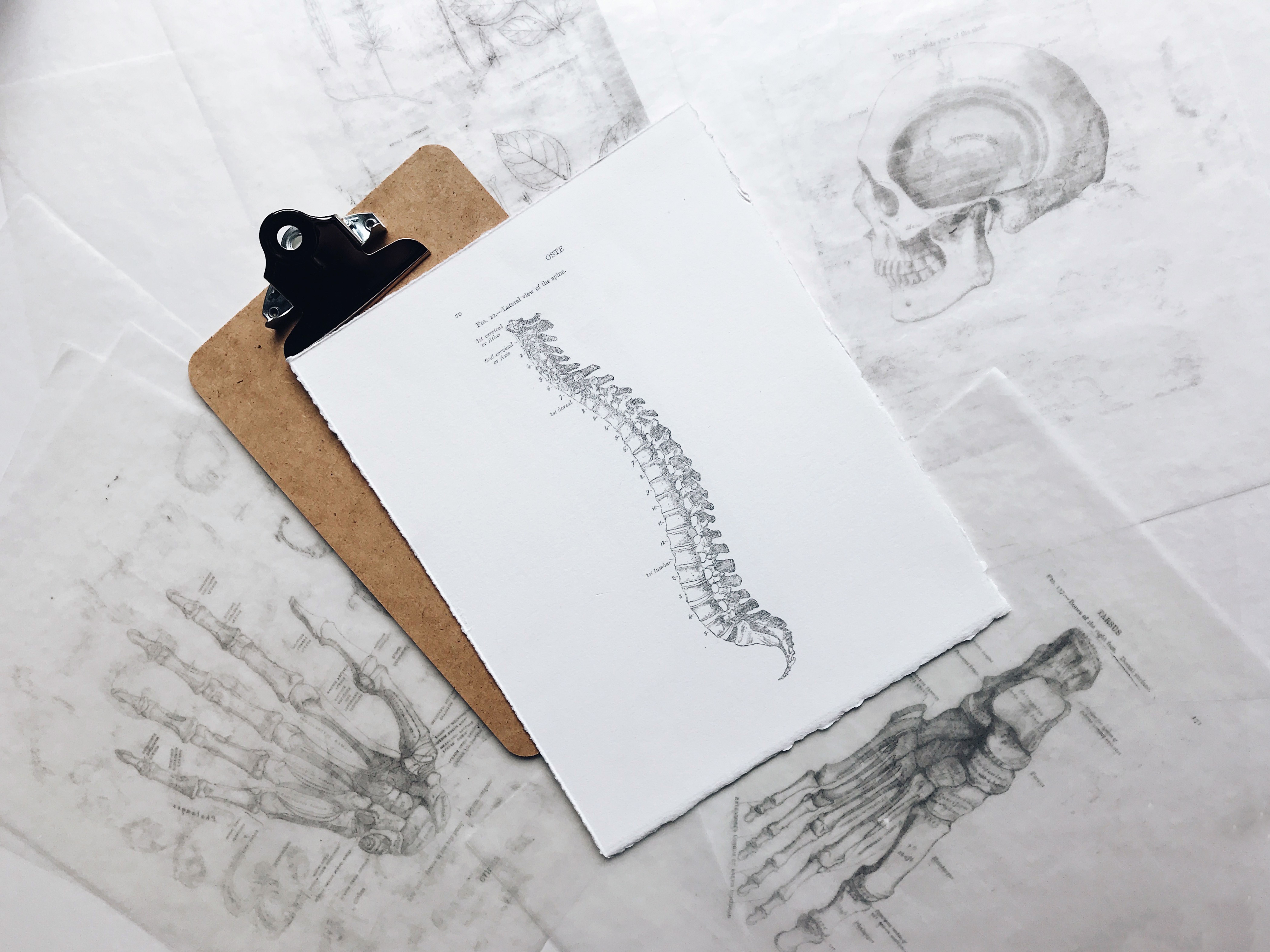
Bone Health
Vitamin D aids in absorbing calcium, a mineral integral to forming and maintaining healthy bones.
There’s some evidence that adequate vitamin D can protect us from prostate, breast, and colon cancers. It may even reduce your overall cancer risk. There is also some preliminary evidence that vitamin D could help treat type 1 and type 2 diabetes.

Muscle Function
Vitamin D plays an essential role in muscle function. Sufficient levels of vitamin D support muscle strength and coordination. Research has found that vitamin D deficiency can lead to muscle weakness and atrophy.

Nervous System
Vitamin D is important for a well-functioning nervous system. This essential nutrient has been linked to the development and proper functioning of the brain. Low vitamin D levels have been associated with increased risks of neurodegenerative diseases.
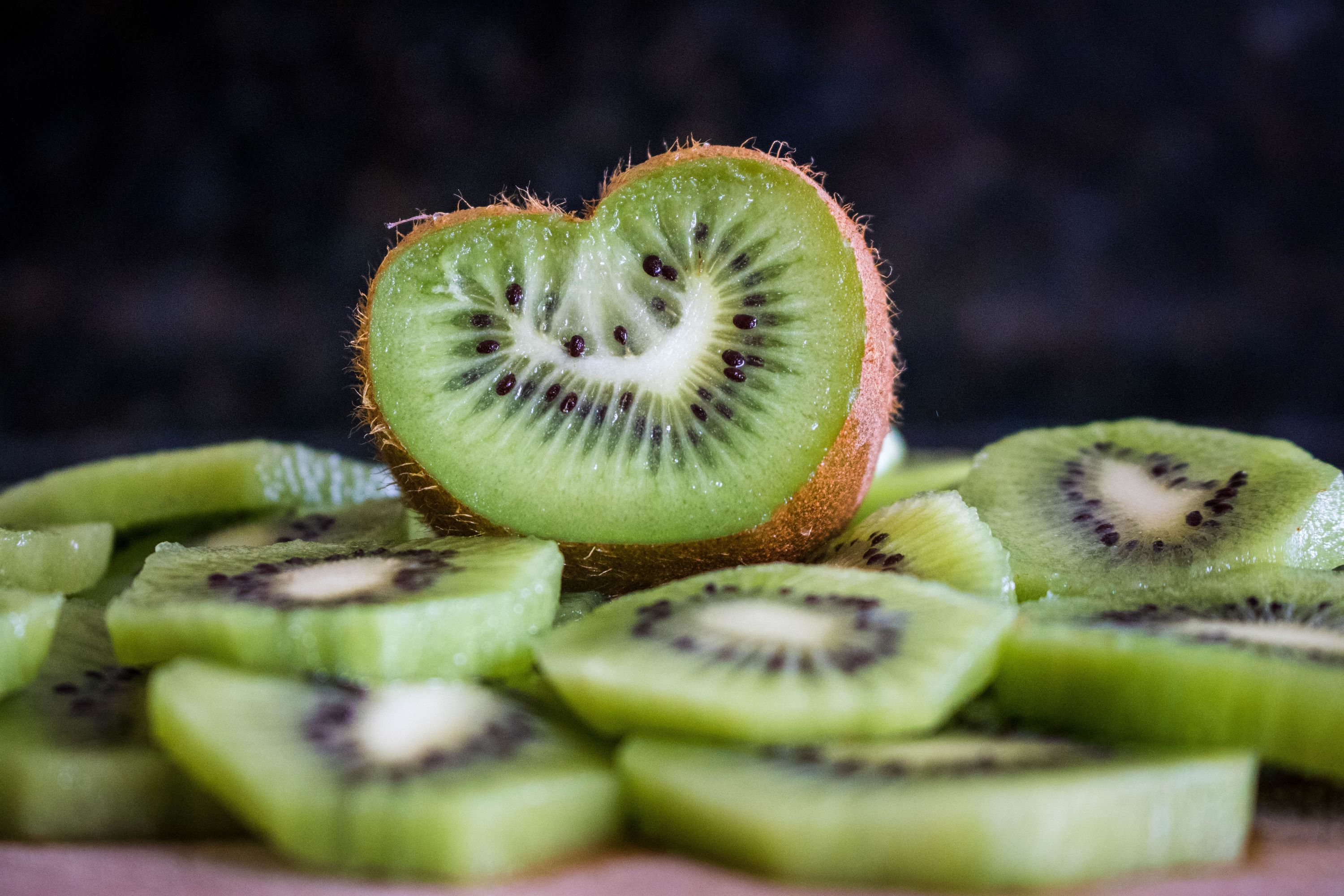
Heart Health
Lastly, vitamin D plays a critical role in maintaining heart health. It’s been found to help regulate blood pressure and support cardiovascular function. People with low vitamin D levels may be at a higher risk of developing heart disease.
Vegan Food Sources of Vitamin D
While most commonly known sources of vitamin D are derived from animal products, such as fatty fish, liver, egg yolks, and cod liver oil, vegans can obtain this essential nutrient through various plant-based foods and sunlight exposure.
Fungi
Fungi, particularly mushrooms, are one of the few natural vegan sources of vitamin D. When exposed to sunlight or ultraviolet light, mushrooms can synthesize vitamin D2. The amount of vitamin D in mushrooms can vary depending on how they are grown and how much UV light they receive. A recent study found that eating mushrooms can help boost your vitamin D just as well as animal foods.

Maitake Mushrooms
Known more commonly as hen-of-the-woods, these mushrooms are rich in Vitamin D, and are often used in traditional Chinese medicine. Maitake mushrooms offer a hearty and meaty texture, which add depth to various dishes.
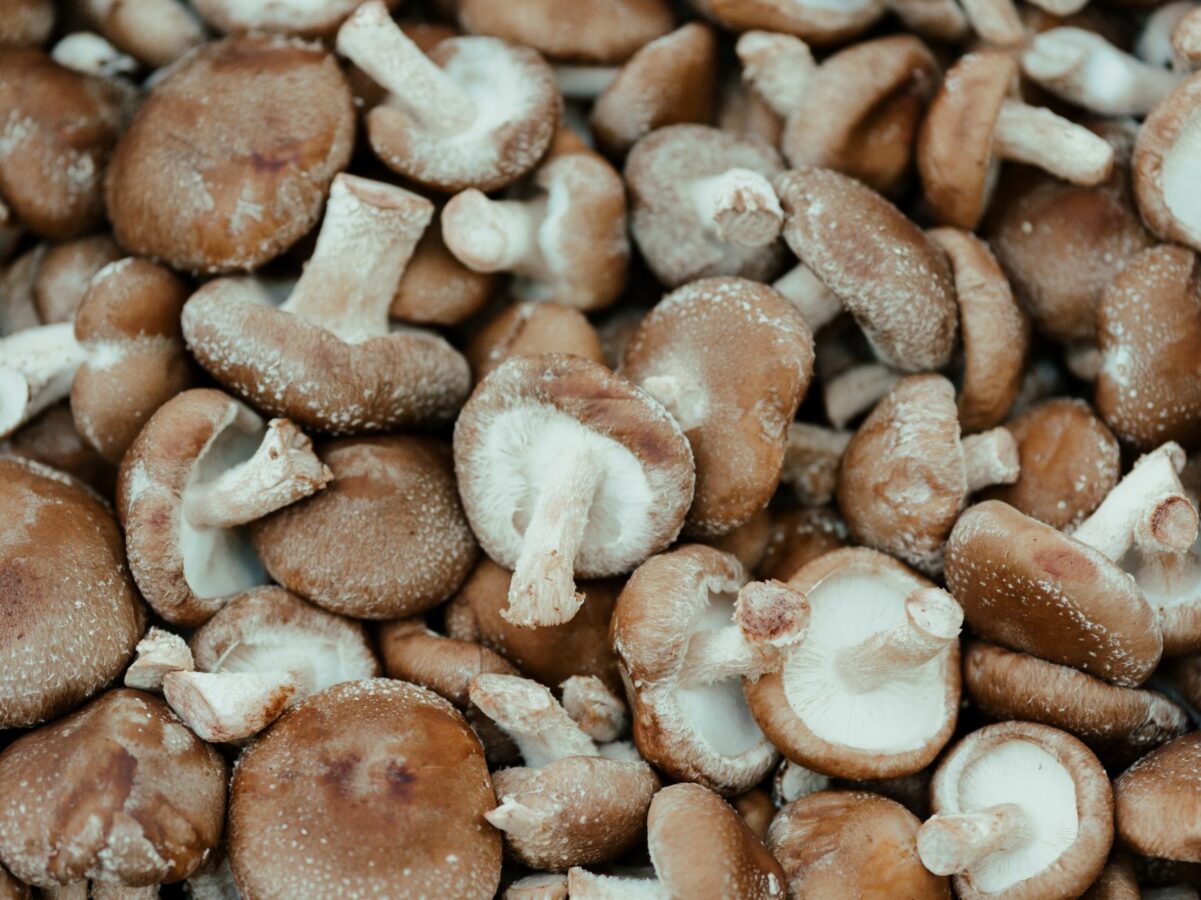
Shiitake Mushrooms
Shiitake mushrooms are an excellent choice for a vegan diet, bringing a savory and smoky flavor to dishes, along with a satisfying chewy texture. Additionally, they offer multiple health benefits, including immune-boosting properties, and a good source of Vitamin D.
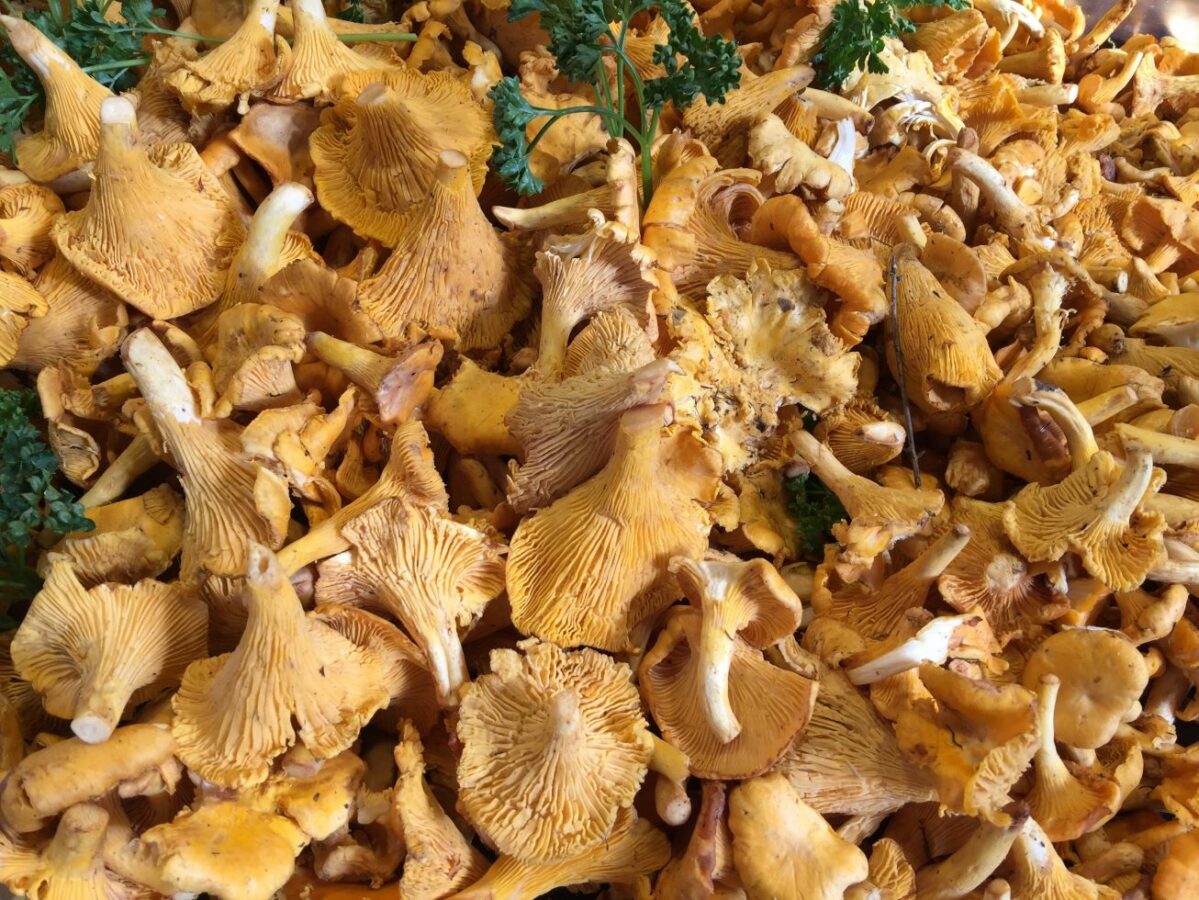
Chanterelle Mushrooms
Chanterelle mushrooms are a valuable addition to a vegan diet due to their rich meaty texture and flavor, providing a unique umami essence to dishes. They’re also a good source of Vitamin D!
Fortified Foods
To help meet vitamin D needs, many food manufacturers fortify certain products with this nutrient. One common method is fortifying plant-based milks such as soy milk, almond milk, or oat milk. Additionally, some breakfast cereals and orange juices are fortified with vitamin D.
By incorporating these vitamin D-rich foods into your daily diet, vegans can meet their vitamin D needs without consuming animal products.
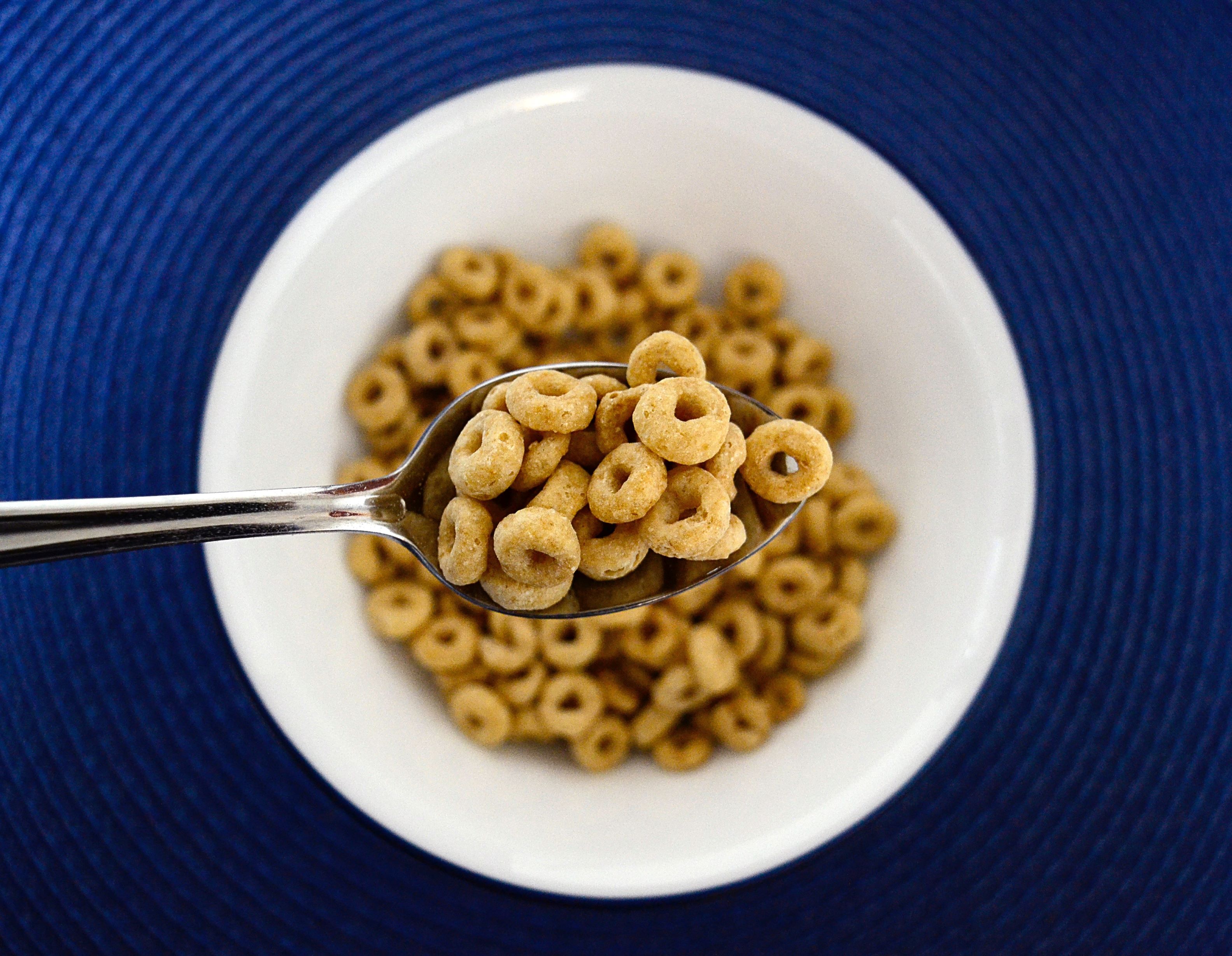
Breakfast cereals
Many are fortified with vitamin D and can provide up to 100% of the recommended daily intake per serving.
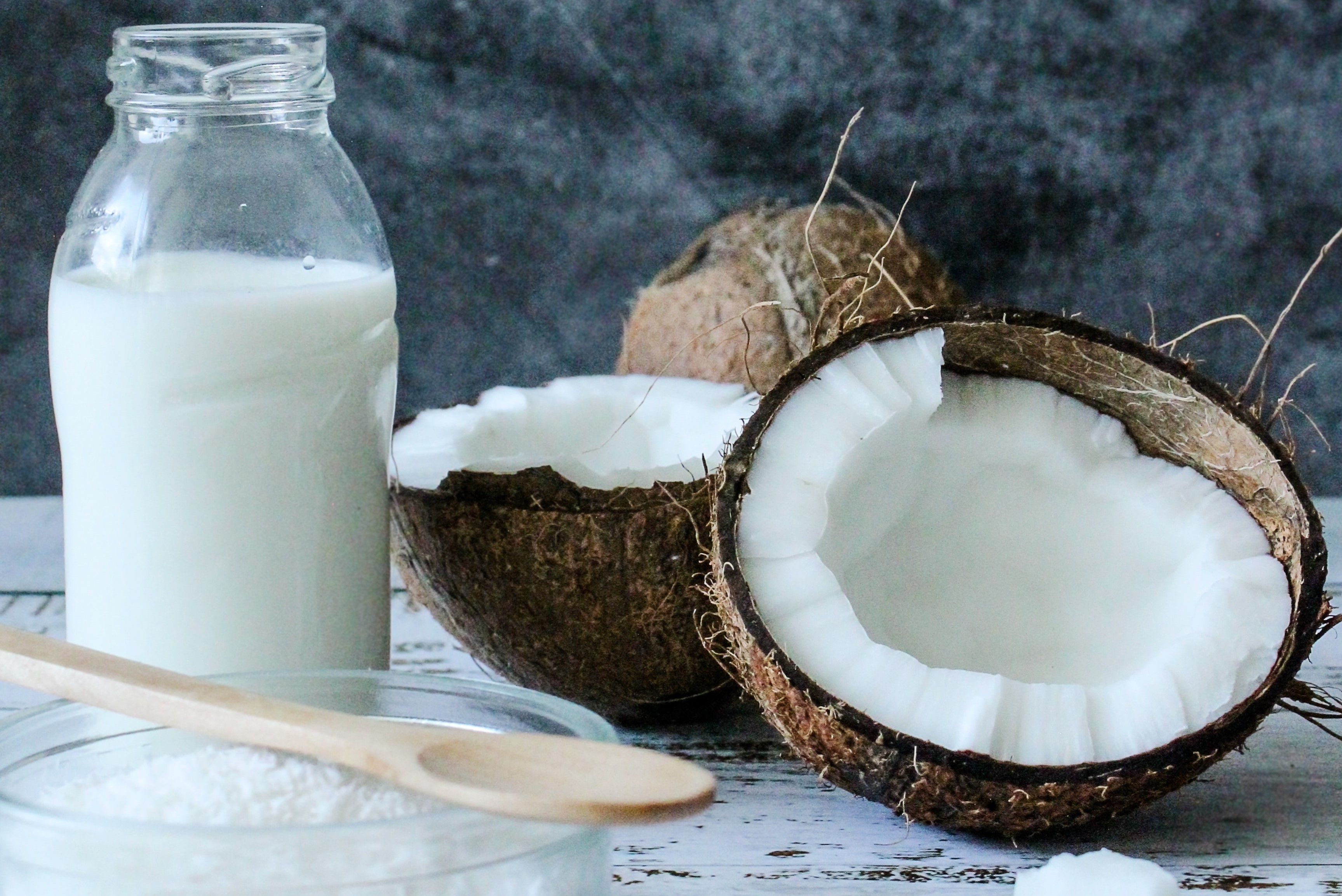
Plant-based milk
Almond, soy, and other plant-based milks often have vitamin D added during processing.
Vegan Vitamin D Supplements
While sunlight and fortified foods can provide sufficient vitamin D for many vegans, some may find it challenging to consistently achieve adequate levels, particularly during the winter months, if living in higher latitudes, or for those with darker skin. In these instances, vegan-friendly vitamin D supplements can be beneficial to maintain optimal vitamin D levels.
Vitamin D2 Supplements
One option for vegans is vitamin D2 supplements, also known as ergocalciferol. Vitamin D2 is derived from plant sources, particularly fungi and yeasts, and can effectively boost vitamin D levels in the blood. However, it’s important to note that Vitamin D2 may not raise blood levels as efficiently as Vitamin D3.
Vitamin D3 Supplements
Vitamin D3, or cholecalciferol, is typically derived from animal sources such as sheep’s wool. However, vegan-friendly versions of D3 are now available that are derived from lichen, a symbiotic relationship between fungi and algae. Research suggests that vegan-friendly vitamin D3 supplements are absorbed more efficiently by the body, leading to more effective maintenance of vitamin D levels.
How the Body Absorbs Vitamin D
Vitamin D absorption is a complex process that begins when the skin is exposed to sunlight, specifically ultraviolet B (UVB) radiation. UVB radiation converts a form of cholesterol in the skin into vitamin D3. This newly formed vitamin D3 is then transported to the liver, where it is converted into 25-hydroxyvitamin D [25(OH)D], or calcifediol, the main form of vitamin D found in the blood.
In the kidneys, 25(OH)D is further converted into its active form, calcitriol, which is a potent hormone that plays several important roles in the human body, including the regulation of calcium and phosphate levels for bone health, immune system function, and cell growth.
Vitamin D from food and supplements is absorbed in the small intestine along with dietary fats, which is why vitamin D is classified as a fat-soluble vitamin. This also means that vitamin D absorption can be affected by any factors that impair fat absorption, such as certain health conditions like celiac disease or cystic fibrosis, and some medications.
Furthermore, the efficiency of vitamin D absorption can vary based on age, with older adults absorbing less than younger individuals. Ethnic groups also play a role, as darker skin has more melanin, which can reduce the skin’s ability to produce vitamin D from sunlight.
Nutrients Affecting Vitamin D Absorption
In addition to standalone vitamin D supplements, combination supplements are available that pair vitamin D with other essential nutrients. For instance, calcium and vitamin D are often combined in a single supplement. This is because vitamin D is crucial to the body’s calcium absorption, which is vital for bone health. By taking a combination supplement, vegans can ensure they get the most benefits from their dietary intake.
Diet plays a crucial role in vitamin D absorption. As mentioned earlier, vitamin D is a fat-soluble vitamin that needs dietary fats to be absorbed properly. Consuming a meal with fat can increase vitamin D absorption. Therefore, people following a vegan diet must ensure they consume adequate healthy fats to absorb vitamin D from foods and supplements.
Additionally, certain nutrients can enhance the absorption and function of vitamin D. For example, magnesium is needed to convert vitamin D into its active form, and deficiency in this mineral can lead to a lower level of active vitamin D, even if your dietary intake is adequate. A balanced diet rich in various nutrients can therefore support optimal vitamin D status.
For vegans, ensuring an adequate intake of vitamin D from fortified foods, sunshine, and, if necessary, supplements, while maintaining a balanced diet rich in other essential nutrients, is key to achieving and maintaining optimal vitamin D status.
Positive Absorption Interactions
- Vitamin D and Calcium: Vitamin D promotes calcium absorption in the gut and maintains adequate serum calcium and phosphate concentrations to enable normal bone mineralization
- Vitamin D and Magnesium: Magnesium is needed to convert vitamin D into its active form, and deficiency in this mineral can lead to a lower level of active vitamin D, even if your dietary intake is adequate.
- Vitamin D and Fat: Vitamin D is a fat-soluble vitamin, meaning it requires fat for proper absorption. Individuals with fat malabsorption issues like certain digestive disorders, may have difficulty absorbing vitamin D from their diet or supplements.
Lifestyle Factors that Impact Vitamin D Absorption
While diet is critical in obtaining and absorbing vitamin D, various lifestyle factors can also significantly influence vitamin D status. Here are a few key lifestyle factors that can impact vitamin D absorption:
Sun Exposure
The most natural way to get vitamin D is by exposing your bare skin to sunlight, specifically UVB radiation. However, many factors can affect the amount of vitamin D your body produces from the sun.
These include your geographical location (the closer to the equator, the more UVB radiation), the time of year (summer months provide more UVB radiation than winter months), the time of day (midday sun provides the most UVB radiation), and the amount of skin exposed. Using sunscreen or clothing covering most of your skin can also reduce vitamin D production.
Age
How much Vitamin-D do we need? Vitamin D needs change throughout different stages of life. According to the National Institutes of Health (NIH):
- Infants up to year old: 400 IU of Vitamin D daily
- Children 1 year – 13 years old: 600 IU of Vitamin D daily
- Adolescents 14 – 18 years old: 600 IU of Vitamin D daily
- Adults 18 – 70 years old: 600 IU of Vitamin D daily
- Adults 70+ years old: 800 IU of Vitamin D daily
Pregnancy and Lactation
The body’s demand for Vitamin D increases during pregnancy and lactation to support the growing baby’s development and breast milk production.
- Pregnant and lactating women need 600 IU of Vitamin D daily
It’s important to note that these are general guidelines, and individual needs can vary. Always consult with a healthcare provider to determine your specific nutritional needs. If you follow a vegan diet, it’s crucial to ensure you consume enough Vitamin-D-rich foods or consider supplementation if necessary.
Skin Color
Melanin, the pigment that gives skin its color, can affect the skin’s ability to produce vitamin D from sunlight. People with darker skin have more melanin, which can reduce vitamin D synthesis.
As a result, individuals with darker skin may need to spend more time in the sun to produce the same amount of vitamin D as those with lighter skin.
Body Weight
Body weight can also influence vitamin D status. Vitamin D is a fat-soluble vitamin, meaning it is stored in fat tissue. People with higher body fat percentages may absorb more vitamin D into their fat cells, leaving less available for use in the body. As a result, individuals with higher body weights or obesity may require higher amounts of vitamin D to maintain optimal levels.
Gut Health
Certain health conditions can affect the body’s ability to absorb vitamin D. For example, conditions that impact fat absorption, like celiac disease, inflammatory bowel disease (IBD), and cystic fibrosis, can decrease the body’s ability to absorb vitamin D, as it is a fat-soluble vitamin.
Physical Activity
Regular physical activity can positively impact vitamin D status. Exercise can help to maintain a healthy body weight, which promotes better vitamin D absorption. Moreover, outdoor exercise can increase sun exposure, increasing vitamin D synthesis.
Tips for Meeting Vitamin D Needs on a Vegan Diet
Ensuring adequate vitamin D intake on a vegan diet may require a bit more planning and mindfulness, but it’s entirely possible. Here are some practical tips to help vegans meet their vitamin D needs.
Consume Vitamin D-Rich Foods
Although vitamin D naturally occurs in few plant-based foods, some vegan foods are high in this essential nutrient. Fungi, like mushrooms exposed to UV light, can be excellent sources of vitamin D. Additionally, many foods are fortified with vitamin D, including breakfast cereals, plant-based milks like almond and soy, and orange juices. Incorporating these foods into your daily meals can help boost your dietary vitamin D intake.
Use Vitamin D Fortified Plant-based Milks
Fortified plant-based milks are an easy way to increase your vitamin D intake. Whether it’s soy, almond, or another plant milk, check the nutrition label to ensure it’s fortified with vitamin D. These can be used in breakfast cereals, smoothies, or even your coffee or tea.
Get Adequate Sun Exposure
Sunlight is the most natural source of vitamin D. Try to get about 15 to 30 minutes of midday sun exposure on your face and hands a few times per week. However, remember that factors such as location, time of year, skin type, and use of sunscreen can affect vitamin D synthesis. Always balance sun exposure with skin cancer prevention.
Consider Vitamin D Supplements
Vegans living in northern latitudes or those not getting enough sunlight should consider taking a vegan vitamin D supplement. The Vegan Society and many other health organizations recommend that all vegans consider vitamin D supplementation, especially during winter. Vegan-friendly vitamin D2 supplements are commonly available, but opt for vegan vitamin D3 supplements derived from lichen for better absorption.
Regular Blood Testing
It’s a good idea to check your vitamin D levels regularly, especially if you have limited sun exposure or have difficulty meeting your vitamin D needs through food alone. This will help you and your health-care provider make informed decisions about supplementation and dietary changes if necessary.
FAQ
How much vitamin D do vegans need daily?
The recommended daily intake of vitamin D for vegans is the same as for non-vegans, which is typically around 600 to 800 IU (International Units) per day.
Are there any risks of vitamin D deficiency in vegans?
Yes, vegans may be at a higher risk of vitamin D deficiency, especially if they have limited sun exposure and don’t consume fortified foods or supplements.
Can vegans get enough vitamin D without supplements?
Yes, vegans can obtain vitamin D from fortified foods like plant-based milk, orange juice, and cereals. Additionally, mushrooms exposed to UV light are a natural source of vegan-friendly vitamin D. Remember to try and always get an adequate amount of sunlight in combination with a varied diet.
